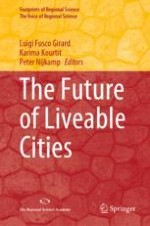2023 | OriginalPaper | Buchkapitel
Challenges in Building More Liveable Cities in Post-socialist European Countries: From “Cities4all” to “Cities4everyone”
verfasst von : Alexandru Bănică, Gabriela Carmen Pascariu
Erschienen in: The Future of Liveable Cities
Aktivieren Sie unsere intelligente Suche, um passende Fachinhalte oder Patente zu finden.
Wählen Sie Textabschnitte aus um mit Künstlicher Intelligenz passenden Patente zu finden. powered by
Markieren Sie Textabschnitte, um KI-gestützt weitere passende Inhalte zu finden. powered by
